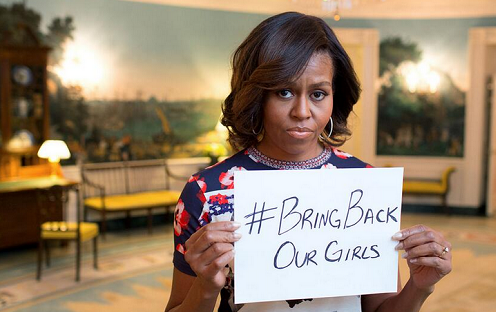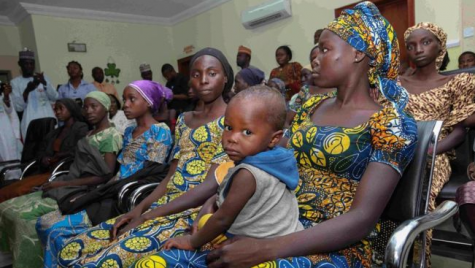An Overview and Update: Chibok School Girls

Back in April 2014, 276 schoolgirls in Chibok Borno State, Nigeria were kidnapped at their school by the extremist terrorist group Boko Haram. Boko Haram leader Abubakar Shekau stated in a video released in May of 2014, “Slavery is allowed in my religion, and I shall capture people and make them slaves.” He also added that the abducted girls should not have been in school, as girls as young as nine are suitable for marriage.
In the months following the abduction, 57 of the girls were able to escape, however, as of the beginning of October 2016, 216 of the girls were still missing. Approximately 2,000 girls and boys have been abducted by Boko Haram since 2014. Of these 2,000 people many were used as sex slaves, fighters, and suicide bombers. Many of the Chibok girls who were abducted were forced into marriage with members of Boko Haram. The girls, primarily Christian, were also forced to convert to Islam. On October 13th of this year, 21 of the Chibok girls were released. It was suggested by reporters that Boko Haram kidnapped the girls with the goal of using them in negotiations to get some of their own commanders out of jail. However, Nigerian Vice President Yemi Osinbajo confirmed that there were no exchanges made with Boko Haram for the 21 girls.
If an abduction this size occurred at Kennebunk High School, over ⅓ of the students would be gone. It would be as if all of the Seniors and most of the Juniors vanished from the school population. The girls abducted in Chibok were between the ages of 16 to 18 and in their final year of school. They were just like the students at KHS, and now, over two years later, most of them are still lost out in the world, away from home, being held as slaves, or married off to members of the Boko Haram terrorist group.
Following the abduction of the nearly 300 schoolgirls, social media in countries worldwide erupted in support of the search. Vigils and protests were held in Nigeria, Pakistan, India, Bangladesh, Britain, the United States, Canada, Portugal and other countries around the world to mark 100 days since the kidnapping. Celebrities and people across the United States took part in the campaign “Bring Back our Girls” and “Real Men Don’t Buy Girls”. Michelle Obama, Queen Latifah, Emma Watson, Anne Hathaway, Cara Delevingne, Drake, Bradley Cooper, Justin Timberlake, Ellen Degeneres, and dozens of other celebrities came together in support of the cause.
It’s been over two years since the 276 girls were kidnapped and 216 girls are still missing. The President of Nigeria, Muhammadu Buhari, has made some progress in the negotiations with Boko Haram for the release of the Chibok girls, however there is a lot of work left to do. As time goes by and the girls are still under the control of Boko Haram, the families are still left to wonder. The families know that many of the girls have been forced into marriage, they know that several of the girls have died and that some of the girls have had babies. What they don’t know is who’s who. They don’t know the fate of their own daughters. Imagine the emotion of the parents when the news of the 21 girls surfaced. The excitement and relief felt by the parents of those who returned, and the false hope and return of fear felt by the parents whose daughters did not come back. When Nigerian President Muhammadu Buhari took office, it was one of his campaign promises that he would bring these girls home. Since he’s been in power 21 of the girls have returned and it’s the hope that more negotiations will be made in the near future and that in the next couple of months we’ll start to see more of the 216 Chibok schoolgirls freed and returned home. The girls have not been forgotten and the search is still on.
(Feature image taken from Michelle Obama’s Twitter feed – https://twitter.com/FLOTUS)
(Photo taken from BBC’s article “How did Nigeria secure the 21 Chibok girls’ release from Boko Haram?” – http://www.bbc.com/news/world-africa-37667915)

